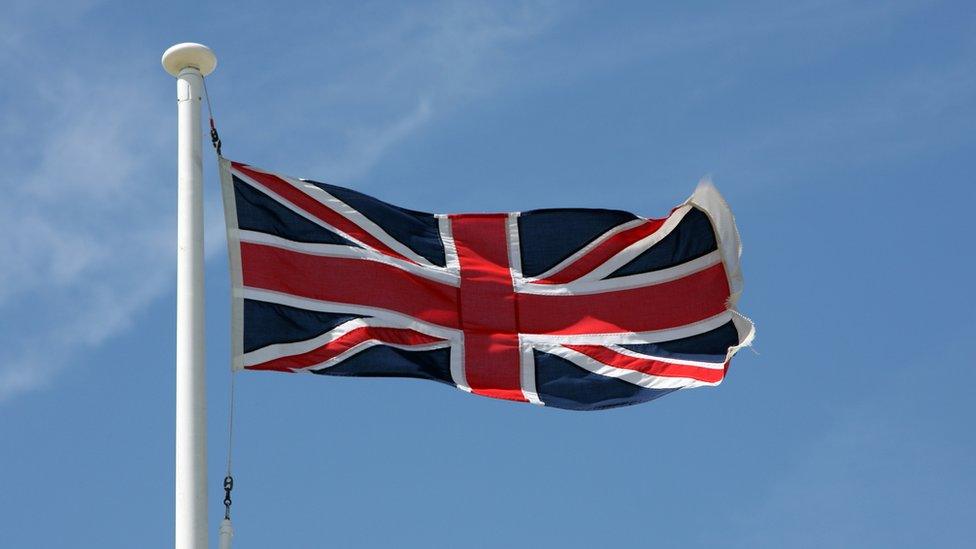NI state papers: Flying union flag shows 'patriotic exuberance'
- Published
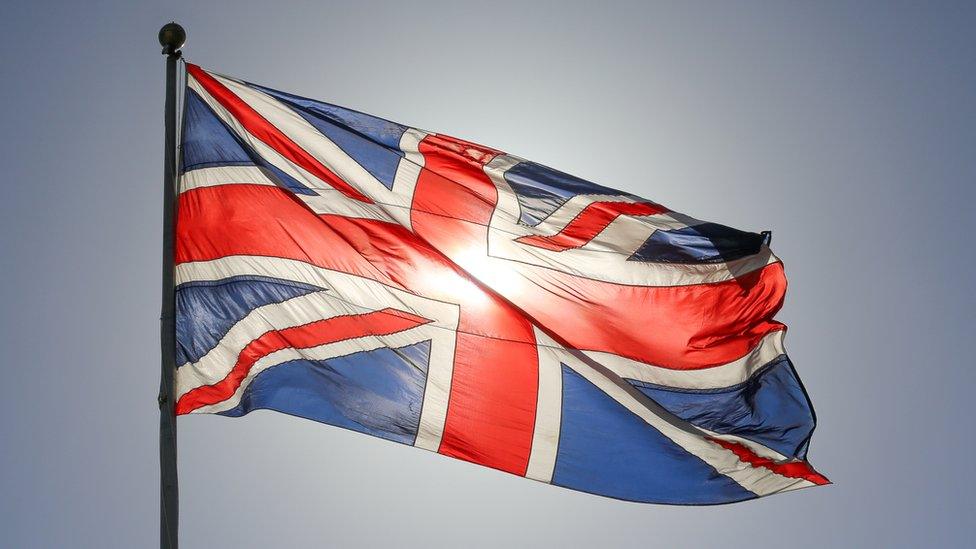
Northern Ireland Office officials were debating flag policies in the 1990s, archived memos reveal
An end to flying the union flag from government buildings on 12 July would "redress the effects of patriotic exuberance" by a unionist government in NI, a government memo from 1994 says.
The note is among almost 500 documents from the 1990s now published online.
In it, Northern Ireland Office (NIO) officials were debating whether to bring government flag policy into line with that in England and Wales.
The files were previously available at the Public Record Office of NI (PRONI).
Another memo notes that "only one (Irish) chair had been smashed up by a guest in the early hours" at a St Patrick's Day party for Irish and British diplomats.
The documents are available on the Conflict Archive on the Internet (CAIN) website, as part of a partnership between PRONI and Ulster University.
At one point, it had been under threat of closure but its future was secured by new funding in 2021.
'New Northern Ireland flag proposals'
The decision to fly the union flag on government buildings on the Twelfth had originally been taken by the Northern Ireland cabinet in April 1933.
In 1994, both the IRA and Combined Loyalist Military Command (CLMC) declared ceasefires.
It was in that context that NIO officials debated whether the policy on flying the union flag should change.
They also considered some designs for a new Northern Ireland flag suggested by an academic called Dr Martin Ball.
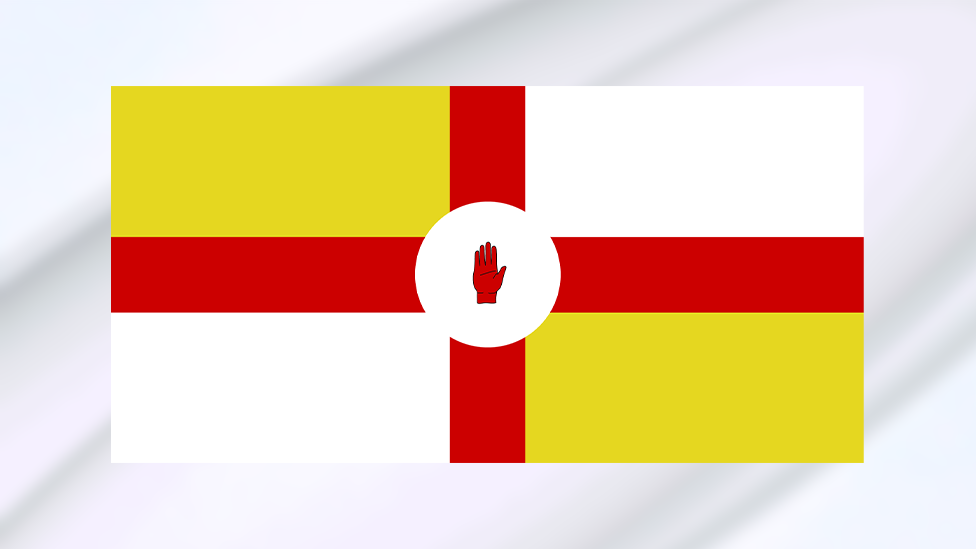
An artistic impression of the "proposed new flag for Northern Ireland" based on a design suggested in the 1995 memo
"There is much to be said for an early initiative to demonstrate government's readiness to grasp the nettle of identity issues rather than appearing to concede to pressure from Sinn Féin at a later stage," one NIO memo stated.
"Regrettably, the union flag lacks in Northern Ireland the politically neutral connotations which it enjoys in the rest of the United Kingdom.
"However, any decision to remove 12 July from the list of prescribed days - even though the day itself would continue to be a bank and public holiday - may be expected to provoke some strong unionist reaction.
"The day is redolent with unionist political overtones and the delisting of it for flag-flying purposes would be interpreted as a dissociation by the state from the unionist tradition."
'Kicking unionists'
Another memo also warned that not flying the union flag on government buildings on 12 July "would undoubtedly provoke unionist ire".
Another official, though, asked: "Is this what we want? Now?
"Surely there are better arguments than to say we are kicking unionists before Sinn Féin ask us to?"

An artistic impression of the "South African-style proposal" which was among the suggestions for a new NI flag in the 1995 memo
Nevertheless, the writer of that memo, an official called PN Bell, said the move was a "courageous (in the 'yes, minister' sense) proposal".
"Slán agus beannacht," he signed off his memo, an Irish-language phrase often translated as goodbye and God bless.
In the event, the Flags (Northern Ireland) Order 2000 eventually brought official flag-flying in Northern Ireland more closely into line with the rest of the UK with little fanfare or protest.
However, there were widespread loyalist protests following a later decision by Belfast City Council in 2012 to fly the union flag at City Hall only on designated days.
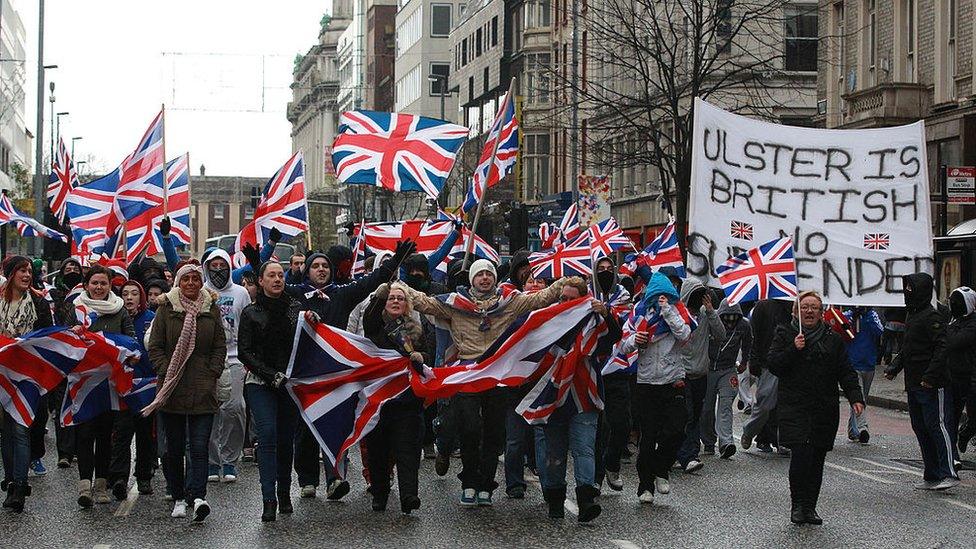
A vote to reduce flag-flying at Belfast City Hall led to protest marches and rallies in 2012
A later memo from March 1997 lauds the success of a St Patrick's Day reception held for NIO and Irish government officials at the Anglo-Irish Secretariat building outside Belfast.
"The Irish side reckoned that, although the numbers were slightly down on the last Christmas reception, approximately 250 people had attended, and only one (Irish) chair had been smashed up by a guest in the early hours," it recorded.
Other NIO memos from the time include the government's responses to Orange Order requests for "confidence-building measures", including that the Order was "a cultural group worthy of funding on the same scale as Gaelic language groups, Gaelic schools, Gaelic Athletic Association etc".
"By and large, the requests cannot be met to any great extent," the NIO memo stated.
Catholic bishops' concerns
Many of the state papers reflect the run-up to the Good Friday Agreement in 1998 and the politics of the time.
But some now published online reflect other events.
For instance, minutes of a meeting between the then secretary of state Peter Brooke and Catholic bishops in 1989 reflected the bishops' concern that education reform would favour integrated schools over Catholic schools.
There is also a letter from the former owner of Harrods department store Mohamed Al-Fayed to the former Ulster Unionist Party (UUP) MLA Sir John Gorman.
Sir John was the chair of the Northern Ireland Forum for Political Dialogue, a body set up in 1996 to try to bring politicians together before the Good Friday Agreement.
Sir John had written to Mr Al-Fayed to offer condolences after his son Dodi was killed alongside Diana, Princess of Wales, and their driver in a car crash in Paris in 1997.
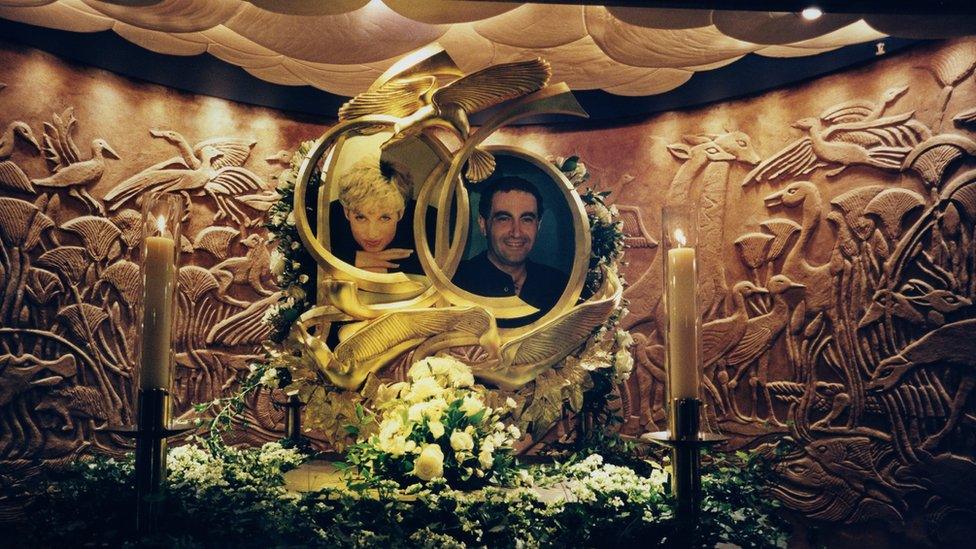
A tribute to the late Princess Diana and Dodi Al-Fayed was erected in Harrods in the late 1990s
"Dodi was always kind, gentle and decent," Mr Al-Fayed wrote in reply.
"The whole family loved Princess Diana but Dodi cherished her friendship more dearly than his own existence.
"As his father, of course I think he was special.
"But I am sure that a wonderful woman like Princess Diana, with that unique star-bright quality, would never have given her affection to anyone outside that part of the heavens that is set aside for the truly exceptional.
"I take some comfort from my absolute belief that God has taken their souls to live together in paradise."
Related topics
- Published1 November 2022
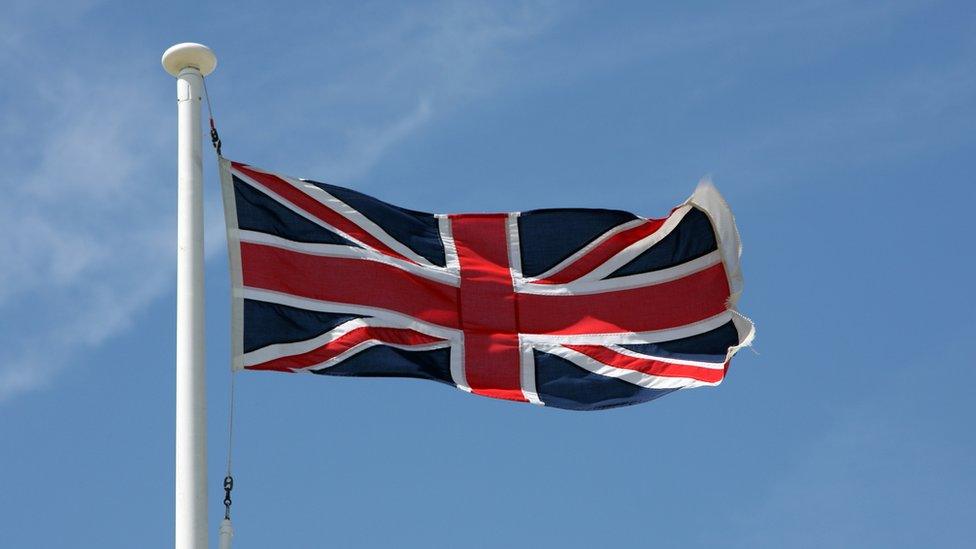
- Published20 August 2019
